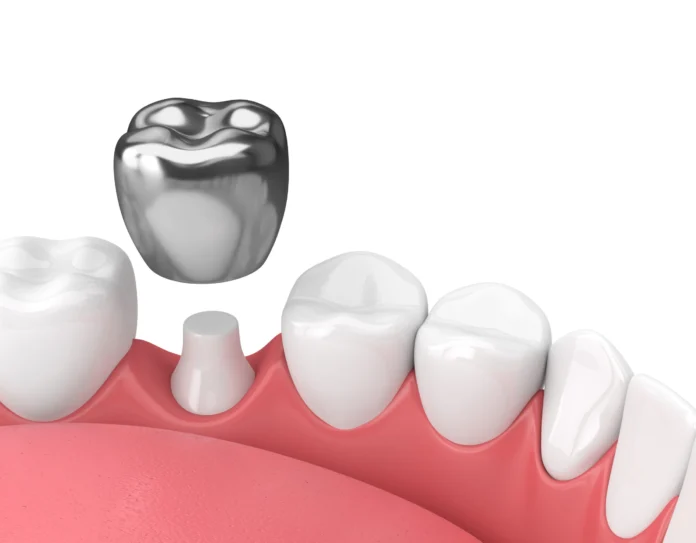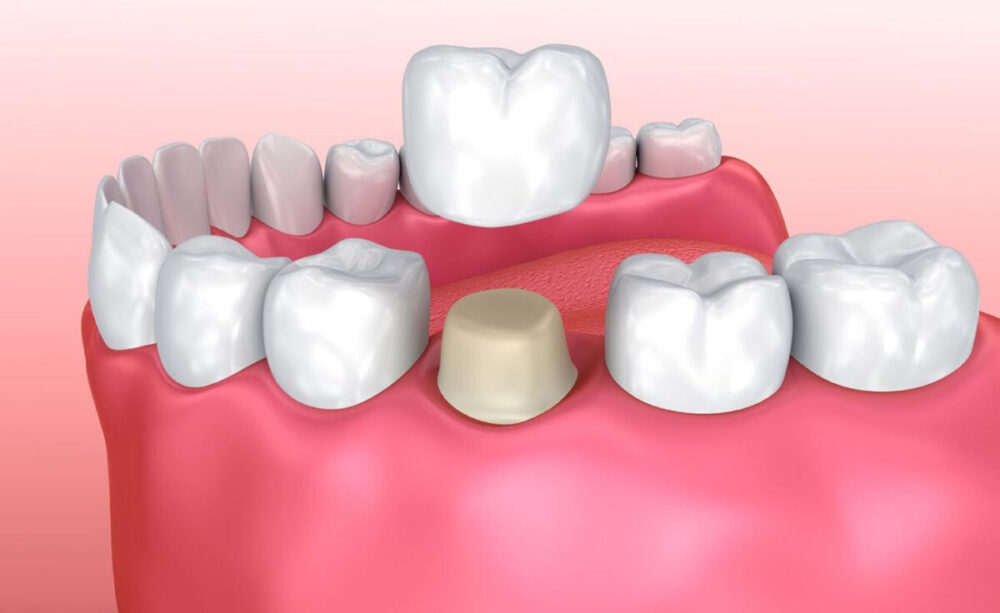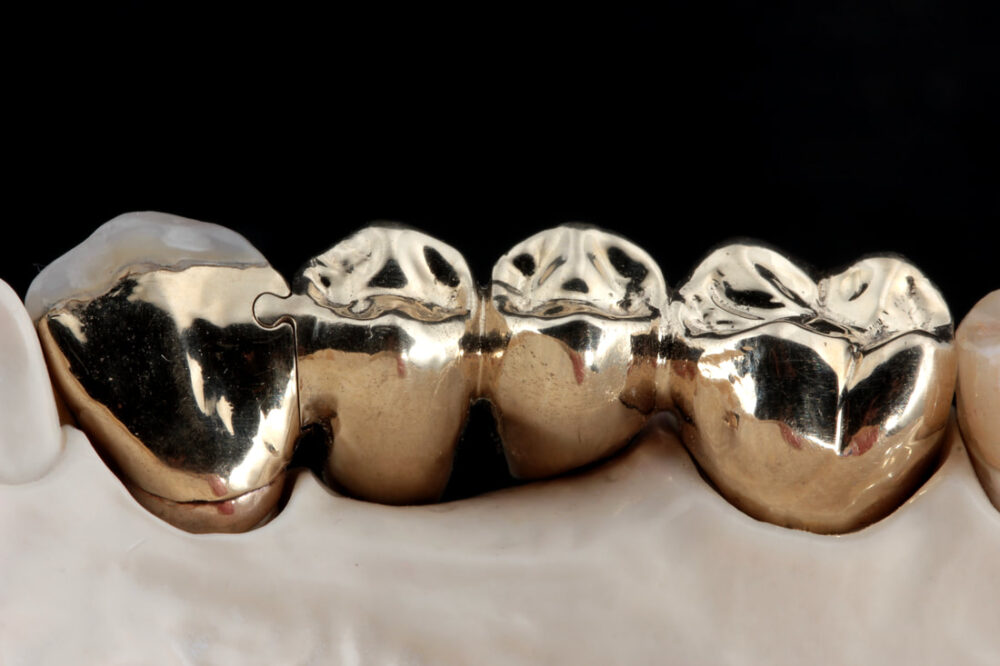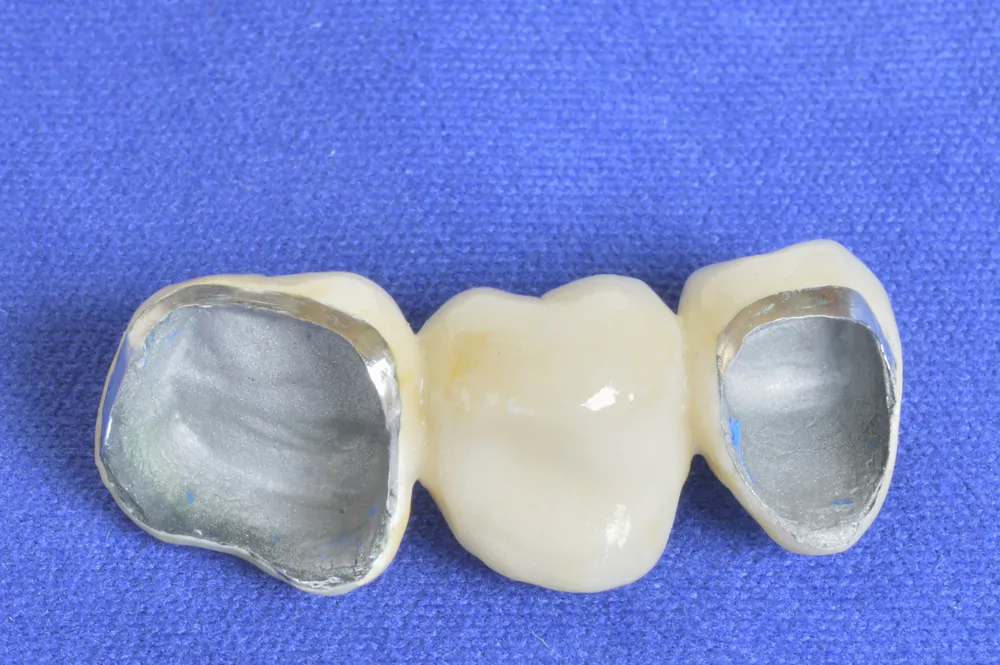
Dental crowns are tooth-shaped caps designed to cover and protect the visible portion of a tooth both above and below the gumline, serving to both prevent infection and support weak teeth.
Before beginning, your dentist will numb both the tooth and surrounding area, remove decay from within it, reshape it to accommodate for crown attachment, and complete all necessary steps in preparation of crown installation.
1. Ceramic

Dental crowns are used to restore broken, cracked, or decayed teeth that cannot be fixed with fillings or bonding, as well as protect implant-supported replacement teeth. Bridgework support or denture replacement is another application of crowns; and in certain instances may even replace an existing tooth when root canal treatment is necessary.
Crowns are typically created in a dental laboratory using an alloy specifically tailored to your needs and circumstances. This means that it is important to be upfront with your dentist about your eating habits and any other concerns. Dental crowns can restore cracked, chipped, worn or damaged teeth back to their original condition.
Your dentist will help select the most suitable crown material based on your specific needs; one popular type made of ceramic closely mimics natural tooth color while being translucent enough for light transmission while being hard and long wearing enough to withstand chewing/biting forces better than some alternatives.
Ceramic crowns can be created in multiple shades to achieve an ideal match with the natural tooth color. Feldspathic porcelain has long been considered an aesthetic and durable material for crowns. This type of porcelain transmits tooth colors directly through its surface while offering durability over a metal core for added strength.
Porcelain-fused-to-metal crowns are among the strongest and longest lasting crown options.
Their core is composed of various metal alloys mixed together to give them their properties needed for dental use; some alloys such as gold and platinum may be noble while other nonnoble alloys like titanium, cobalt and chromium can be non-noble alloys that meet these specifications.
Metal crowns may not be as appealing, but they’re strong enough for out-of-sight molars and can withstand wear from chewing and biting forces. Like all crowns, however, metal ones should be regularly checked and cleaned – they may need replacing sooner due to not being as durable.
For proper installation of a metal crown, your affected tooth must first be filed down along its chewing surface and edges in order to create space. A qualified dentist can help walk you through the dental crown replacement procedure in more detail. That is why it’s essential that you visit an experienced professional that offers cutting-edge technologies and training for best results.
2. Zirconia
Zirconia is an emerging material for dental crowns. Composed of zirconium oxide ceramic, this type of dental crown material is stronger than porcelain and other metal alloys. Additionally, zirconia’s smooth surfaces cause less stress on opposing teeth than porcelain due to the absence of sharp edges that could erode away enamel from underneath its crowns.
Full-contour zirconia crowns are the strongest variety, making them suitable for areas that will experience increased biting or grinding force, such as the molars and premolars. Unfortunately, their opaque quality makes them unsuitable for front teeth as their appearance can make them appear opaque and unnatural.
You can discuss these issues with your dental practitioner. If you have dental anxiety, you can click the link: https://my.clevelandclinic.org/health/diseases/22594-dentophobia-fear-of-dentists for tips on how to manage your condition.
3. Alloys

Alloy crowns are composed of a combination of metals. Since pure metals don’t possess the necessary physical characteristics for use in dental applications, they must be mixed with other metallic elements to form alloys. Alloys are commonly used because they provide strength, durability and can withstand biting/chewing forces more easily than other options.
Before selecting a crown, it’s essential that you understand the three primary categories of dental alloys and their individual properties. Each alloy can impact the crown’s durability as well as how well it binds with porcelain, both of which are important factors when creating long-term restorations.
4. PFM
PFM crowns are constructed using high noble gold alloy. This type of crown features an inner core made of metal (usually gold or another noble metal) covered by translucent porcelain that gives them their characteristic natural look while providing strong support during chewing forces. Low noble gold alloys are another popular choice for PFM crowns, providing an economical yet highly durable alternative to more premium options. Although less attractive in appearance than their more premium counterparts, low noble gold alloys still perform extremely well as durable components of crowns for PFM use. You can visit this helpful site for more information about this type of material.

5. Gold
Gold crowns, as the name implies, are composed entirely of metal. Their primary advantage lies in their strength compared to other dental work such as porcelain veneers – their inherent properties make them highly resilient against physical pressure – but they’re also chosen because they’re more malleable and can be formed into tight fits around each tooth for the most secure fix possible.
They hold up well during chewing while protecting surrounding teeth from wearing down as much during this process, so gold crowns make an excellent option for posterior (back) teeth that may experience grinding or jaw clenches (bruxism).
Although metallic crowns don’t offer the natural aesthetic appeal of porcelain crowns, they’re durable and long-term solutions for damaged teeth. Their metallic color can be noticeable in your mouth so they may not be suitable for front teeth.
Each type of dental crown has its own benefits. A qualified dental professional can help you make the right decision for your needs.








